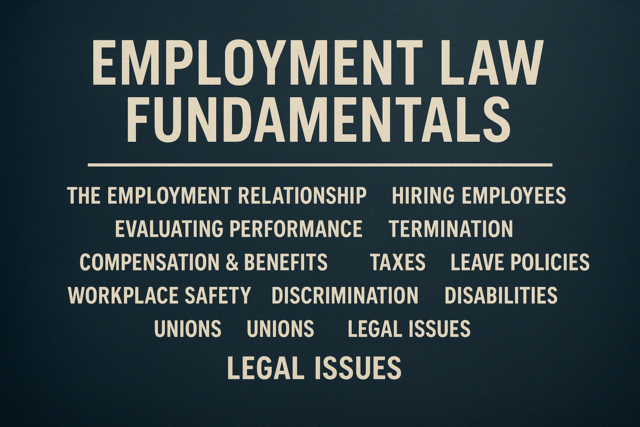Managers are equally concerned about the people they hire, the people that report to them, and upon whom responsibility plays a large part in the successful running of any business regardless of industry or field. In today's sue-happy society, lapses in ethical behavior, as well as poor decisions, may cost a business their customers, consumer confidence, and even sanctions and fines.
The Importance of Business Ethics
In light of the fairly recent savings and loan crises, Wall Street insider trading, price-fixing, racial discrimination, sexual harassment and environmental accidents, disasters, and issues of safety, the importance of business ethics in the 21st century has reached an all-time high.
Ethics in government has long been an issue with American voters and can range from financial scandals that originate in Congress, to personal travails of high government officials and sexual harassment in the military. Child sexual abuse within religious institutions, schools and sports organizations also receive regular and abundant media attention.
Scandals ranging from performance-enhancing drug use by high-profile athletes, academic plagiarism and mismanagement of charity funds concern each and every one of us to a certain degree. Such scandals and examples of inappropriate or unethical behavior may affect us at our place of work, our school, and even our homes.
Ethics reflect morals, standards, and values from all socioeconomic levels and demographics. Race, gender, and age don't play a huge role in whether or not something is considered ethical or unethical. It seems odd that in today's society, we feel compelled to announce and publicly recognize good deeds, when in fact such deeds used to be considered the norm.
A stranger rescues a woman from a mugger, a young man pulls an elderly woman from a car stranded on railroad tracks moments before a train demolishes it, and a woman jumps into an icy pond to save a toddler who has wandered away from his mother. These stories personify the basic and innate goodness that is found in most people, and yet we give such individuals certificates and awards, parades and accolades. In many cases, this is because we, as a society, have become increasingly cynical about the ability of people to perform selfless deeds without expectation of reward.
Unfortunately, these traits are not so commonly found in our bosses, our corporate directors, and even in some of our government officials. Many consumers don't like to deal with local and state forms of government because of their highhanded practices, their attitudes, and endless reams of red tape.
Responsibilities and Obligations
The study of business ethics is a study of values, principles, and standards within a business environment. It is also a barometer of standards that ought to be, or should be, followed in a wide variety of business structures. While there is no concrete answer to every ethical question or dilemma that might arise in a wide range of scenarios, there is no single, correct way to "learn" a concrete definition of business ethics.
Rather, business ethics involves a wide range of disciplines, including law, public policy, management, and to some degree, the study of philosophy and psychology. Instead of concrete rules, business ethics incorporate principles, concepts, and goals in various business settings. Unfortunately, there is a large difference between expected ethical behaviors and judgments. The concept is more than knowing the difference between good and bad, or right from wrong, and has as much to do with character, attitude, and motivation as anything else.
The study of business ethics is not to tell people how to behave, but to engage students, employees, and employers in a process that involves thought and questions based on customary values and morals. Every student of business ethics must be able to think for him- or herself. Because of this, there always will be a large number of differences in what people perceive as ethical or unethical behavior.
One of the largest challenges for those teaching or learning business ethics is to find a balance between the intellectual or spiritual sense that may be applied in a wide range of scenarios in society in general. The leading trend is to enable business managers to empower employees to make their own decisions.
The word ethics comes from the Greek word ethos, which means "conventional" or "customary". In many cultures, values and morals are directly connected to religious views. Philosophical ethics defines the difference between what someone does to what someone should do. As such, some aspects of ethics delve into the field of philosophy and abstract thinking. Many people are cynical about such an approach to the study of business ethics because it requires that one seek an understanding of what is valued rather than what should be valued. As with anything else, this is often a personal choice and decision. After all, none of us want someone to tell us what we should feel about anything.
Perhaps this area of study requires each of us to attempt to determine how various business decisions will affect our lives. Do the decisions or practices engaged in our daily business environment promote well being or undermine it?
Socrates, the ancient Greek philosopher, said, "The unexamined life is not worth living." As such, each of us often struggles with our own feelings of morality, virtues and instances where we must determine whether something is right or wrong. Business ethics address both morality and virtue as determining factors of how we should act and behave both in our personal lives and within a business environment.
A fundamental goal of business ethics is to encourage students to ask such questions as, "What should I do?" or "What kind of person am I supposed to be?" Even better, "What would I do if...?"
The Ethical Decision-Making Process
When it comes to making sound ethical decisions, several factors come into play. Moral awareness is one of them. Moral awareness is defined as the recognition of the existence of an ethical dilemma. Another key factor in making an ethical decision involves a judgment that decides what's right and what's wrong. Ethical behavior, or taking action to do the right thing, is another part of the ethical decision-making process triangle.
Keep in mind that most decision-making processes are divided into two types: individual decisions and organizational decisions. A business manager must be able to represent the organization, while the individual is more concerned with the morality of such a decision. Individuals often know what the right thing to do is, but find it difficult to do so because of pressure from inside groups or organizations. Because of this, it is extremely important for businesses and organizations to manage their conduct and to maintain codes of ethics and conduct to determine what is expected in such environments.
Ethics in the Workplace
Small Business Ethics
Business ethics are not just designed for huge corporations and organizations. Whether a business employs thousands of workers or 10, business ethics are an important aspect of any work environment.
A common ethical problem may have a big impact on small business, as well as large corporations. Discrimination, prejudice, or disputes between employers and employees all have an impact on how well a business is likely to run. Developing a good, strong relationship between workers and employers is essential in order to meet expectations, and to promote consideration and the rights of all parties involved.
An employer pays a salary and benefits to an employee who is expected to perform a particular job or task. At the other end of the spectrum, an organization or business manager expects their employees to behave in a certain manner. Concepts such as virtue, honesty and loyalty are rewarded, while dishonesty and deceit offer a fast track to unemployment.
Both employers and employees expect to be treated fairly. Various issues involving ethics crop up in small businesses as well as large corporations. Such issues may include but are not limited to:
- Human resource issues
- Discrimination
- Harassment
- Conflicts of interest
Some examples of human resource issues are those that occur where people work together in a small environment. It can include and impact such topics as privacy, performance evaluation, the hiring and firing process, discrimination and various types of harassment.
However, when it comes to such issues, everyone expects to be treated fairly. This means being treated as an equal, and with impartiality. For example, many people might feel that responsibilities or work is unbalanced if two people perform the same task and only one is rewarded.
Discrimination isn't just about race. It's about religion, sex, age, and culture. Discrimination is against the law in the United States, and while many companies do have policies prohibiting any type or hint of discrimination, many people are likely to discover that the reality between policy and actuality are quite different.
Age discrimination is one of the most talked-about issues in the workplace in the 21st century. Forced retirement, layoffs, and termination with or without severance pay affects older workers more than any generation before. Because the baby boomer generation is one of the largest in history, this disparity is going to play an important role over the next decade.
It is important for business managers, no matter how big or small a business, to be able to manage different types of people -- this includes those of different age groups, religious, demographic, and cultural backgrounds. As of the year 2000, nearly 85 percent of new workers in the workforce are women, immigrants, and minorities.
Discrimination is a serious issue. In the United States, citizens consider it their right to be able to work in any place that their training, education, and skills make them suitable for. The Equal Employment Opportunity Commission (EEOC) is a great resource for demographic information and legislation that prohibits discrimination based on "race, religion, sex, color, and national origin."
Sexual harassment is an unwelcome behavior that makes someone feel uncomfortable at his or her place of work. It can be subtle or obvious. In most cases, sexual harassment typically involves the inappropriate behavior of a supervisor over a lower ranking employee. The law defines two types of sexual harassment: a hostile work environment, or a quid pro quo scenario.
A hostile work environment is defined as a worker or employee who is uncomfortable due to actions or comments relating to sex or sexuality by another person in their place of work. However, does this mean that a male boss who puts his arms around a female worker is harassing her? Not necessarily. Sexual harassment in the workplace does not involve merely physical gestures, but verbal remarks of a sexual nature.
The quid pro quo scenario is the age-old, "sexual favors for advancement in the workplace" routine. Lines become blurred over issues such as complementing someone's appearance or making jokes that may be considered sexual in nature.
Sexual harassment is a form of discrimination and becomes a business ethics issue because it directly relates to job satisfaction, comfort levels, and perhaps even promotions or advancements.
Conflicts of interest occur at any point in time when a person's objectivity or judgment may be compromised. The mere appearance of a conflict of interest may prove devastating to a company's reputation even though nothing happened. For example, consider a scenario where an accountant has a client who needs to have his books "adjusted" in order to escape a huge income tax fine. The client offers the accountant and his or her employees extravagant holiday gifts or vacations as a "reward." Such an offer may be construed as a subtle bribe and are inappropriate to accept.
Accepting the gifts may be construed as a conflict of interest and may prove damaging to the accountant if other clients were to discover that such a gift had been accepted. In a way, a relationship with the client such as this may constitute a conflict of interest due to influence.
When business decisions involve someone with whom a person has a personal relationship, it is wise for someone else to make any final financial or operations decisions. Avoiding the appearance of a conflict of interest in any situation like this will help to avoid people being charged with partiality.
Codes of Conduct
To help define the boundaries for small and large business owners, codes of conduct and ethics have been developed by major corporations as well as mom-and-pop grocery stores. It doesn't matter whether those codes of conduct or ethics are 300 pages long, or one page long -- they serve as a guideline to how a business should be run - from the industry level all the way down to employees and individuals.
Small-business owners can take the example from major industrial corporations. When it comes to best practices, adopting or enforcing a code of conduct provides employees and managerial staff with training in respect to expectations of behavior and conduct within any workplace environment. After all, CEOs are not the only ones concerned with ethics.
Managers are concerned with business ethics because of the importance of preventing and managing unacceptable or unethical behavior in their place of business. For example, theft in the workplace costs American businessmen and women an average of $30 billion a year. Such behavior is a management problem that needs to be addressed and dealt with at all levels.
Employees care about business ethics because they want to be treated fairly. Many employees who feel that their employers are being unfair in regard to work expectations, pay, or other issues may believe that they, in turn, can behave in any manner they see fit. This is the "sticking it to the man" mentality. Many employees may also feel that it's okay to lie about sales figures, shortchange customers, or otherwise hamper competition because they feel they're doing their boss a favor.
A manager wants to be able to hire and keep good workers. Studies have shown that applicants are more apt to be attracted to companies and businesses that are ethical, not only in word but also in deed. This means maintaining honest and respectful treatment of employees.
Employees want to care about whom they work for. They want to work for a company or business with a good reputation. It doesn't matter whether it's the mom-and-pop grocery store on the corner, or a pet store, or an accounting firm, or a carpet cleaning business.
Conclusion
All of us want to be treated fairly, and given as much of a chance to succeed as anyone else. As employers, we want to be able to trust our employees with our business. Because everyone wants to be treated fairly, it would seem logical that both sides of the business spectrum would be able to respect and cater to these needs. Often, however, this is not the case. Because of this, strict guidelines, codes, and regulations have made their way into the corporate workplace.






























